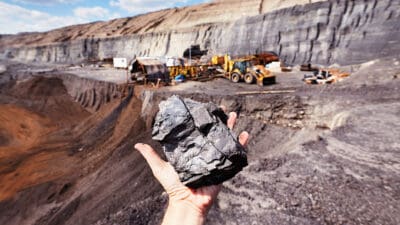One of the biggest news items of the day today has been the news that the Suez Canal has once again been blocked. The Suez, located in Egypt, is one of the most vital arterial trade routes in the world. It enables ships to move efficiently between the Red Sea and the Mediterranean Sea, a far shorter route than the alternative of sailing around the African continent.
According to reporting from the ABC, the Affinity V oil tanker, which is roughly 252 metres long and 45 metres wide, ran aground last night (our time). It took five hours to refloat the ship and get it moving again.
But this is not the first time a ship has come to grief in the incredibly narrow and busy channel. Readers would probably remember the ruckus caused by a similar incident in March last year. That incident had a stuck ship that took more than six days to dislodge, effectively holding up hundreds of other ships carrying vital cargo, including oil shipments.
So how did the ASX react to that globally-destabilising news last time?
Well, as we covered at the time, the primary beneficiaries were ASX energy shares. Oil companies tend to ride or die on the price of crude oil itself. And with such a vital global trade route shuttered in 2021, oil immediately spiked, leading to some outsized gains in ASX oil and energy shares.
What has happened to ASX 200 oil shares in 2022's Suez crisis?
So is that what has happened today?
Well, not quite. As my Fool colleague James reported this morning, this latest blockage in the Suez Canal did little to the oil price overnight. In fact, my colleague reported this morning that "the WTI crude oil price is down 2.7% to US$89.15 a barrel and the Brent crude oil price is down 2.8% to US$96.50 a barrel. Recession fears continue to weigh on sentiment".
ASX 200 oil shares followed suit today. The Woodside Energy Group Ltd (ASX: WDS) share price closed at $33.47 this afternoon, down 2.28%. Santos Ltd (ASX: STO) shares lost 2.79% to $7.67, while Beach Energy Ltd (ASX: BPT) shares lost a nasty 4.4% to $1.64 each.
So perhaps it's the fact that the stuck ship this time was dislodged within a few hours, compared to the six days last time, that has left investors unfazed by this latest news. There doesn't seem to be the dramatic bottleneck of commodity-laden ships that we saw last year this time.
Either way, this week's 'Suez crisis' doesn't seem to have had nearly the kind of impact on global trade, oil prices or ASX 200 energy shares as the last one.









